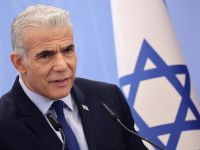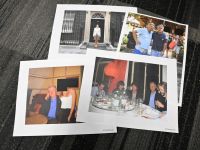Omanis voted for a new advisory council on Thursday in the Gulf sultanate's first direct polls, with 21 women candidates standing for office in a new test of the democratic process.
At Chamsa al-Khalili school in Old Muscat, one of the capital's six polling stations, men and women queued separately in orderly lines on a humid and overcast morning, the men in white dishdasha robes and turbans, headscarved women in black.
The voters filled in their names and signed or added a fingerprint next to the candidate of their choice.
An expanded electoral college of about 114,000, compared to only 51,000 in the last ballot of 1997, is to elect a new 83-seat Majlis al-Shura, or consultative council.
The 21 women candidates were among a field of 550 runners, while a president of the council is appointed by the conservative Muslim state's veteran ruler, Sultan Qaboos.
Apart from widening the voter base in Oman, where only about 600,000 of the 1.6 million people eligible are over the voting age of 21, a 30 percent share of participation has this time been fixed for women.
Tribal and community leaders, however, continue to appoint the electoral college for the ballot, which last time produced a turnout of almost 90 percent.
A rarity in the Gulf Arab monarchies, women were given the vote in Oman in 1994 but won only two seats in each of the past two elections to the consultative council, which has a three-year mandate.
"The number of women elected this time will be seen as a litmus test of development in Oman, as well as the number of educated candidates who win rather than tribal figures," a Western diplomat said.
The polls opened at seven a.m. (0300 GMT) and were to close 12 hours later, with official results due in on Friday.
Each of the 59 constituencies will elect its members to the council, whereas in the past the government had the final say by choosing from the candidates who won the most votes.
The electoral college was expanded to 175,000, or around a quarter of Omanis of voting age, but only 65 percent of them picked up their voting cards for the Shura polls.
"The problem is the Majlis showed in the last term that it doesn't have teeth and that could explain why people haven't bothered to register," the diplomat said.
Omani officials, meanwhile, have defended the gradual process of democratization. "A 1,000-mile journey starts with a single pace," said the interior ministry undersecretary, Mohammed bin Sultan al-Bussaidi.
The council was founded in 1991 amid political reforms in the region's Arab monarchies after the Gulf War over Kuwait.
The council has no say on defense, internal security or foreign policy nor the power to block proposed legislation, only an advisory role, mainly on the economy, and the right to question ministers.
In the absence of party politics, the candidates canvassed door-to-door and met constituents at home during a quiet campaign. On election day, around 20 foreign journalists were touring polling stations.
In the past three elections, tribal sheikhs have been the big winners, some of them only semi-literate, at the expense of more qualified candidates - MUSCAT (AFP)
© 2000 Al Bawaba (www.albawaba.com)







